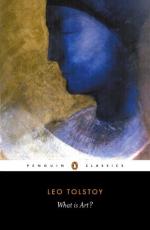|
This section contains 3,741 words (approx. 13 pages at 300 words per page) |

|
The question of artistic truth first arises with the ancients. In his Republic, Plato argues that fine art and poetry cannot impart truths because they do not give humankind access to the Forms. Just as a mirror can only deliver a reflection of the particulars that themselves are merely reflections of the Forms, so painting and poetry amount to little more than pale images of Platonic Ideas at a third remove. Aristotle, in contrast, defended poetry as a means of obtaining general knowledge about probable courses of human events. One could learn from Antigone, for example, the likely turn of affairs when two strong-willed and unbending people, each convinced that he or she is in the right, disagree on matters of principle.
Though this topic is usually referred to in terms of "artistic truth," it is more precisely a concern with knowledge and the...
|
This section contains 3,741 words (approx. 13 pages at 300 words per page) |

|


